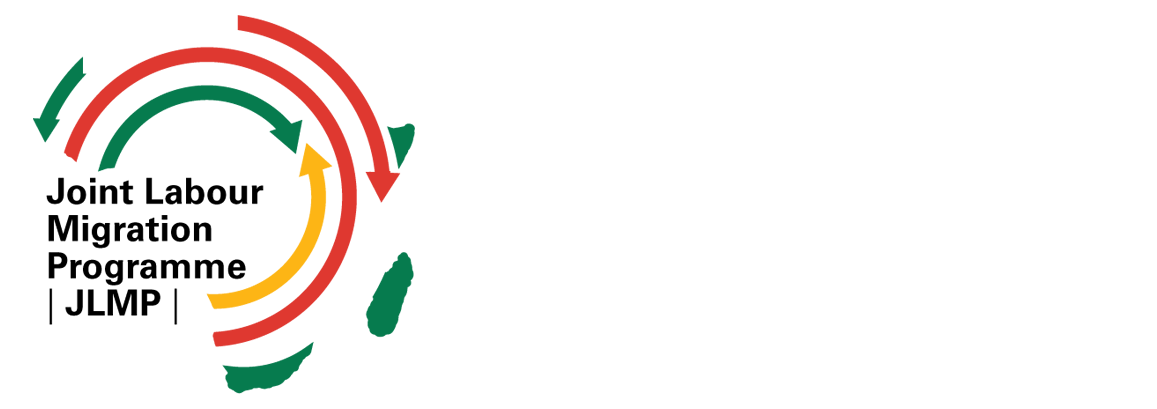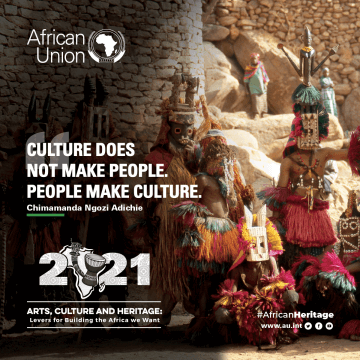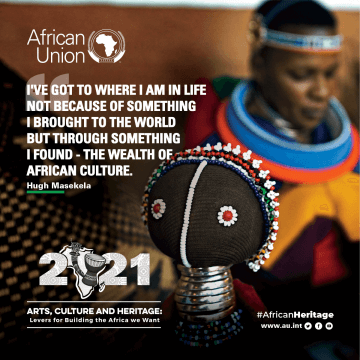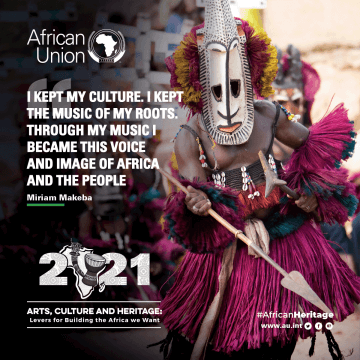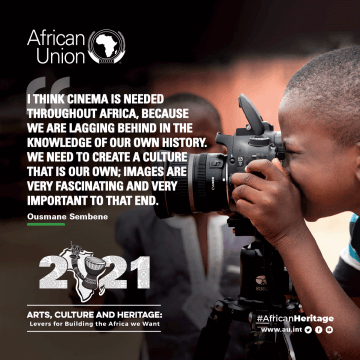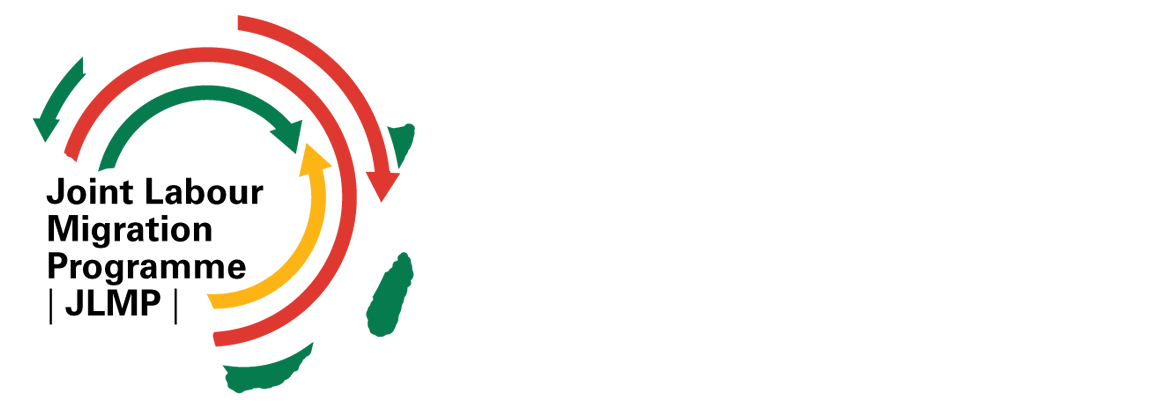JLMP Partners
African Union Commission
The AUC is the overall ‘lead agency’ for the programme implementation, responsible for providing overall vision and political perspective, for organizing, supervising and reporting on operations, for mobilizing consultation with and participation of the respective Regional Economic Community officials and for facilitating communication and coordination with concerned entities in member country governments.
International Organization for Migration
Established in 1951, IOM is the UN Migration Agency with a current membership of 169 States (including 53 of the 55 African Union Member States) and further 8 States holding observer status. The Headquarters of the organisation are in Geneva. With the overall objective of “promoting humane and orderly migration for the benefit of all», IOM provides services and advice to governments and migrants. IOM acts with its partners in the international community to: i) assist in meeting the growing operational challenges of migration management; ii) advance understanding of migration issues; iii) encourage social and economic development through migration; and iv) uphold the human dignity and well-being of migrants. IOM works in the four broad areas of migration management: migration and development, facilitating migration, regulating migration, and addressing forced migration. Crosscutting activities include the promotion of international migration law, policy debate and guidance, protection of migrants’ rights, migration health and the gender dimension of migration.
International Labour Organization
The International Labour Organization (ILO) is the largest specialized agency of the United Nations system; it brings together representatives of governments, employers and workers to jointly shape policies and programmes promoting Decent Work for all. Its mandate comprises drawing up, promoting and supervising International Labour Standards; Employment promotion including enterprise development, sectoral activity and cooperatives; obtaining Social Protection and social security worldwide; and facilitating Social Dialogue among government, employers and worker organizations. It provides technical cooperation, advisory services, capacity building and training and operates the International Training Centre (ILO-ITC) in Turin, Italy. Established in 1919 in the Treaty of Versailles, the ILO today comprises 185 Member Countries, including all AU Member States.
United Nations Economic Comission for Africa
Established by the Economic and Social Council (ECOSOC) of the United Nations (UN) in 1958 as one of the UN's five regional commissions, ECA's mandate is to promote the economic and social development of its member States, foster intra-regional integration, and promote international cooperation for Africa's development. Made up of 54 Member States, playing a dual role as a regional arm of the UN and as a key component of the African institutional landscape, ECA is well positioned to make unique contributions to address the Continent’s development challenges.
Recs
AMU or UMA
The Arab Maghreb Union (AMU) was founded in February 1989 in Marrakech with the approval of the Treaty Instituting the Arab Maghreb Union. At the Treaty approval, the member States agreed to coordinate, harmonize and rationalize their policies and strategies to achieve sustainable development in all sectors of human activities. In addition to the Treaty, the Marrakesh Summit adopted the Solemn Declaration on the establishment of AMU and its work program
http://www.maghrebarabe.org/
COMESA
The Common Market for Eastern and Southern Africa (COMESA) was formed in December 1994 to replace the former Preferential Trade Area (PTA) from the early 1980s in Eastern and Southern Africa. COMESA was created to serve as an organization of free independent sovereign States that have agreed to cooperate in developing their natural and human resources for the good of all their people. In this context, the main focus of COMESA has been on the formation of a large economic and trading unit to overcome trade barriers faced by individual States.
http://www.comesa.int/
EAC
The East African Community (EAC) was originally founded in 1967, dissolved in 1977, and revived with the Treaty for the Establishment of the East African Community (the Treaty Establishing EAC) signed in 1999 by Kenya, Uganda and United Republic of Tanzania. Burundi and Rwanda became members in 2007 while South Sudan gained accession in April 2016. Underpinned by their historical links, Kenya, Uganda and United Republic of Tanzania had established strong economic cooperation laying the groundwork for further political, economic and social integration of the EAC member States.
http://www.eac.int/
ECCAS
In December 1981, the leaders of the Customs and Economic Union of Central African States (UDEAC) agreed to form a wider economic community of Central African States. The Economic Community of Central African States was established on October 1983 by members of UDEAC, Sao Tome and Principe and members of the Economic Community of the Great Lakes Countries, Zaire[1], Burundi and Rwanda[2]. ECCAS was however inactive for several years due to financial constraints, conflicts in the Great Lakes area as well as the war in Democratic Republic of Congo where member States (Rwanda and Angola) were fighting on different sides. Nevertheless, in October 1999, ECCAS was formally designated into the African Economic Community as one of the eight pillars of the African Union.
http://www.ceeac-eccas.org/
ECOWAS
The Economic Community of West African States was established by the Treaty of Lagos signed by fifteen West African Heads of State and Government of in May 28, 1975. The treaty of Lagos was initially limited to economic cooperation but emerging political events led to its revision and expansion of scope of cooperation in 1993. Cabo Verde joined in 1976 and Mauritania decided to withdraw in 2000 to join the Arab Maghreb Union. The vision of ECOWAS is to promote cooperation and integration, leading to the establishment of an Economic Union in West Africa in order to raise the living standards of its peoples, to maintain and enhance economic stability, foster relations among member States as well as to contribute to the progress and development of the African Continent.
http://www.ecowas.int/
IGAD
The Intergovernmental Authority on Development (IGAD) was created in 1996 to succeed the Intergovernmental Authority on Drought and Development that was founded in 1986 to deal with issues related to drought and desertification in the Horn Africa. IGAD came to existence with a new name, organizational structure and a revitalized ambition of expanded cooperation among its member States. The mission of IGAD is to assist and complement the efforts of the member States to achieve, through increased cooperation: food security and environmental protection, peace and security, and economic cooperation and integration in the region.
http://www.igad.int/
SADC
In April, 1980 the Southern Africa Coordination Conference (SADCC) was created to advance the cause of national political and economic liberation in Southern Africa. In July 1981, a Memorandum of Understanding came into force which formalized the establishment and operations of the organization. Its main objectives were to reduce the dependence of member States on the then apartheid South Africa, mobilize resources to promote national and regional policies as well as to facilitate cooperation and understanding amongst the member States.
http://www.sadc.int/
Social partners
Programme Partners
Donors
GIZ
The German development agency headquartered in Bonn and Eschborn that provides services in the field of international development cooperation. GIZ mainly implements technical cooperation projects of the Federal Ministry for Economic Cooperation and Development (BMZ), its main commissioning party, although it also works with the private sector and other national and supranational government organizations (but usually not with non-governmental organizations) on a public benefit basis. In its activities GIZ seeks to follow the paradigm of sustainable development, which aims at economic development through social inclusion and environmental protection.
https://www.giz.de/en/html/index.html
SIDA
The Swedish International Development Cooperation Agency, Sida, is a government agency working on behalf of the Swedish parliament and government, with the mission to reduce poverty in the world. Through our work and in cooperation with others, we contribute to implementing Sweden’s Policy for Global Development.
https://www.sida.se/English/

